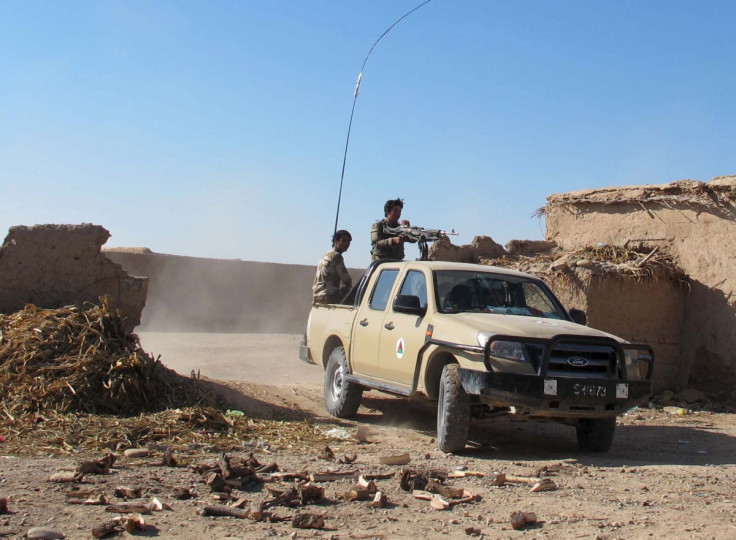Bloody Helmand: 100 'proud' British soldiers died defending Sangin - the Taliban will conquer it anyhow

It has been a bloody 48 hours for Afghanistan. As the Taliban appear to be close to seizing the town of Sangin, in Helmand Province, as the US confirmed six servicemen were killed and three people wounded in a suicide attack north of Kabul. As Britain confirms 450 soldiers are being deployed to the war torn country to "advise" Afghan forces, the words of David Cameron almost two years ago today are all the more profound.
"I think we will have accomplished [our] mission and so our troops can be very proud of what they have done," he said during a visit to Helmand in December 2013.
Even at the time, Cameron's claim had echoes of former US president George Bush's "mission accomplished" speech on Iraq in 2003, after Saddam Hussein's defeat and the fall of Baghdad. The horrors of Iraq had barely begun, of course, and the nascent insurgency that grew in Iraq was to cost plenty more American lives. It is still being seen today in the form of the brutal Islamic State (Isis).
The government is likely to argue the war in Afghanistan remains a success, pointing out security was handed over to a US and UK-trained Afghan army that was non-existent prior to the invasion in 2001, when the Taliban controlled Kabul. Although the Islamist militia is poised to seize even more territory in Helmand Province as 2015 comes to a close, it remains a far weaker and divided force than under Mullah Omar 15 years ago.
But the fact remains that of the 454 combat fatalities in Afghanistan, Sangin is responsible for 100. If the Taliban is able to take the territory back, it will be difficult to spin the British campaign in Helmand as anything other than a failure. Sangin and wider Helmand is Afghanistan's prime opium-producing region and will be a significant financial boon for the Islamist militia as it continues its surge across the country.
Captain Doug Beattie, who was awarded the Military Cross during one of his three tours to Helmand, summed it up in an interview to The Times on 22 December: "It is looking like all of that blood, sweat and toil could have been for nothing. You have to ask yourself the question: Why is it all failing? Was it all for nothing?"
Weeks ago, it emerged that IS (Daesh) had also managed to establish a foothold in the country that the US and UK invaded in 2001 following the refusal of the Taliban to hand over Osama bin Laden, the al-Qaeda leader and architect of the 9/11 attacks. It wrested several districts in the east of the country from the Taliban earlier in 2015 and in December appeared to be upping its propaganda and appeal to Afghan civilians living there.
US general John Campbell, who is the commander of international forces in Afghanistan, said in November there were between 1,000 and 3,000 members of the movement in Afghanistan and its influence would spread if left unchecked. That is a worrying shift for Afghan civilians, tens of thousands of whom are already using people smugglers to make the perilous journey to Europe as refugees.
The Taliban have been an increasingly prominent force in Afghanistan over the past two years, confounding rumours that the movement was fatally divided following the death of secretive leader Mullah Omar. It has come amid optimism about Afghanistan's future that came with the election of Ashraf Ghani in September 2014, marking an end to the divisive decade-long reign of Hamid Karzai.
In September, the Taliban was able to seize the town of Kunduz and has gone on to take other key areas around the provincial capital of Lashkar Gar, Musah Qal'ah and Khanishin. Earlier in December, Helmand's deputy governor Mohammad Jan Rasulyar said unless President Ghani took urgent action, the province, a centre of opium production that British and American troops struggled to control for years, would be lost.
"Your Excellency, Helmand is standing on the brink and there is a serious need for you to come," he wrote on Facebook.
As 2015 comes to a close, it appears that reality is closer than ever.
© Copyright IBTimes 2025. All rights reserved.






















